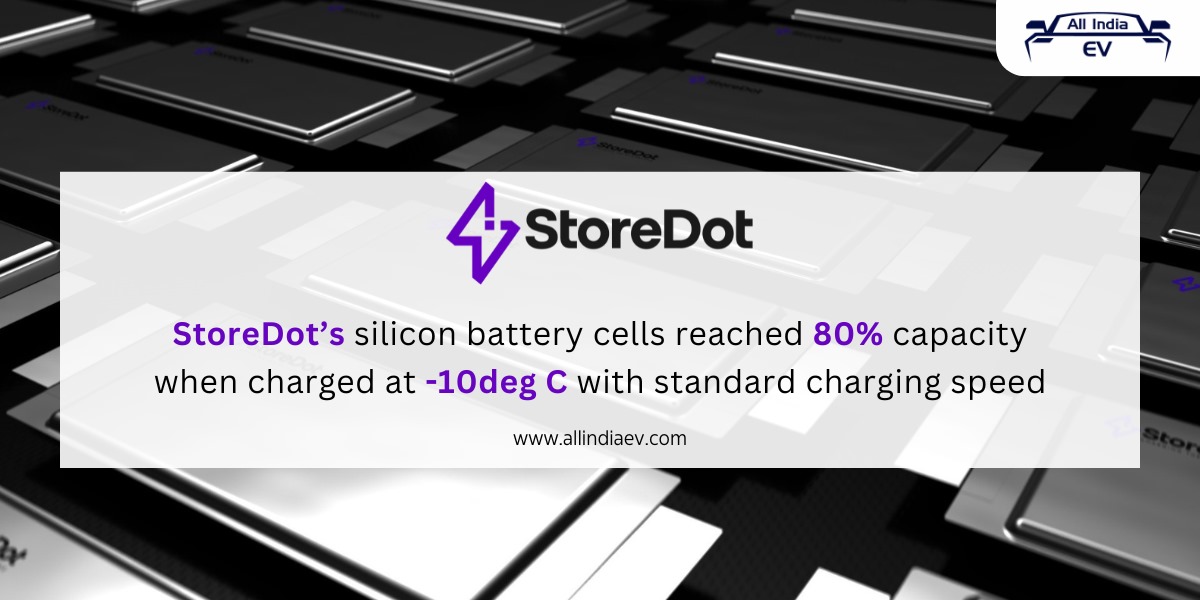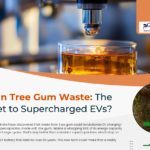
StoreDot claims its extremely fast-charging EV batteries are winter-proof
StoreDot says its EV batteries can charge fast and withstand cold. The company’s silicon-based extreme fast charging (XFC) battery technology for electric vehicles (EVs) can perform well in winter conditions, according to StoreDot.
This means that EV drivers can charge their vehicles even when the temperature drops below freezing, without compromising their driving range. This technology solves the problem of winter range anxiety, giving EV drivers a dependable and efficient solution.
The company’s silicon-based battery cells achieved 80% capacity when charged at -10deg C with standard charging speed, as shown by recent laboratory tests. The battery cells also maintained a steady discharge rate and a sufficient driving range, even in very cold conditions.
At -10deg C (14deg F), the cells provided over 85% of their full range capacity.
At -20deg C (-4deg F), the cells still delivered over 70% of their full range capacity.
StoreDot’s XFC cells are superior to conventional EV batteries on the market, as they have higher energy storage capacity, faster charging speeds, and longer lifetime. They are also future-proof and offer optimal performance in any climate, all year round.
“Our latest tests have proven that our batteries can overcome the cold weather range and charging challenges that often affect electric vehicles in colder climates. Unlike most lithium-ion batteries that lose capacity in extreme cold, our innovative design that uses silicon-rich anodes reduces this loss. Our batteries offer optimal driving range even in the most extreme, subzero conditions. With our groundbreaking technology, drivers can now tackle winter’s toughest obstacles, ensuring a smooth driving experience in any climate or conditions and eliminating winter range anxiety.”
Dr Doron Myersdorf, CEO, of StoreDot
StoreDot has recently shared its expected milestones for 2024. These include showing the world’s first EV pack with XFC technology, sending prismatic B-samples to OEMs, and growing its operations in the US on the way to commercialization. The company claims to be ready for the production of XFC cells that can charge 100 miles in 5 minutes this year. The company aims to achieve 100 miles charged in 4 minutes in 2026 and 100 miles charged in 3 minutes by 2028.
One of the reasons why the world needs fast charging in EVs is to increase their convenience and attractiveness for consumers. Fast charging can enable longer trips, encourage consumers who lack access to private charging to buy an EV and reduce range anxiety as a barrier to EV adoption. Fast charging can also lower the per-mile costs of EVs, especially when compared to gas or diesel cars. Moreover, fast charging can support the integration of renewable energy sources into the power grid, as it can help balance the supply and demand of electricity.




